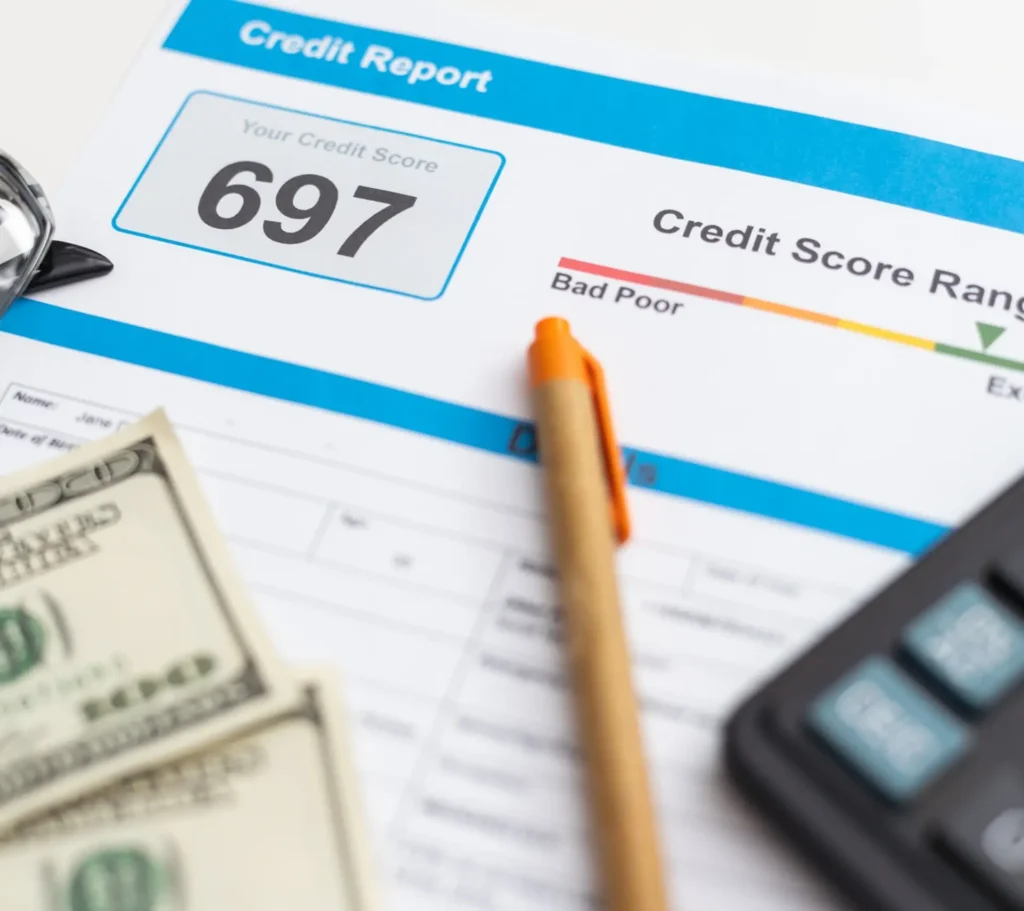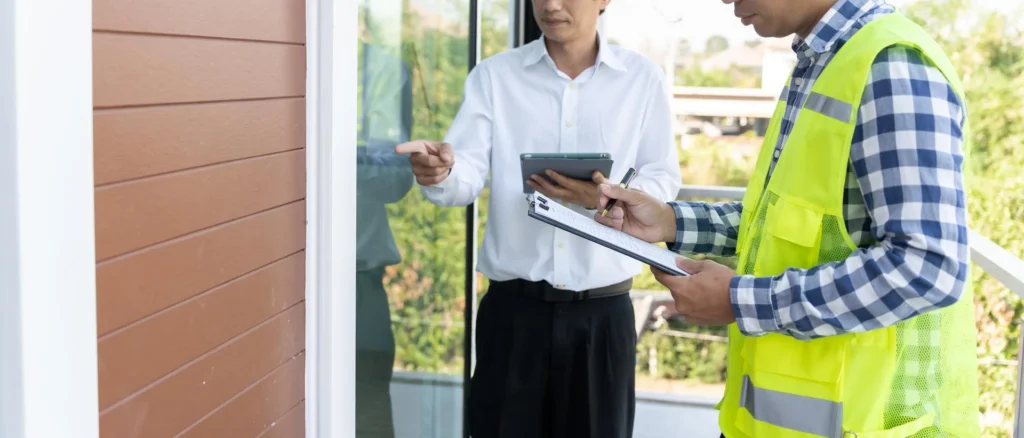Top 15 First-Time Home Buying Tips
Buying your first home is one of the most exciting times of your life, and it should be a positive one. With these handfuls of first-time home buying tips, you’ll be able to move through the process with confidence and clarity, knowing what to expect every step of the way.
Buying a house for the first-time enables you to achieve your financial goals, create a place of your own that you love, and invest in your future. There are a number of critical steps to buying a house for the first time and here’s how to do it with confidence.
- Understanding Your Financial Situation: First-Time Home Buying Tips Start Here
- First-Time Home Buying Tips: #1 Credit Score Importance
- First-Time Home Buying Tips: #2 Debt-to-Income Ratio Management
- First-Time Home Buying Tips: #3 Build Your Down Payment & Closing Costs
- First-Time Home Buying Tips: #4 Know Your Mortgage Loan Options
- First-Time Home Buying Tips: #5 Preparing for Homeownership
- First-Time Home Buying Tips: #6 Mortgage Prequalification
- First-Time Home Buying Tips: #7 Researching Neighborhoods
- First-Time Home Buying Tips #8 Home Buying Wish List
- First-Time Home Buying Tips #9 Finding the Right Real Estate Agent
- First-Time Home Buying Tips #10 House Hunting
- First-Time Home Buying Tips #11 Making an Offer and Negotiating
- First-Time Home Buying Tips #12 The Importance of Home Inspections and Appraisals
- First-Time Home Buying Tips#13 Understanding Home Insurance
- First-Time Home Buying Tips #14 Closing Process and Moving In
- First-Time Home Buying Tips #15 Long-Term Homeownership Success
- Reach Out to a Trusted Real Estate Agent to Start the Journey
-
FAQs About First-Time Home Buying Tips
- What are the essential first-time home-buying tips?
- What is the importance of getting pre-approved for a mortgage?
- How can I find the right real estate agent for first-time home buying?
- What are the additional costs associated with buying a home?
- What should I consider when choosing a neighborhood?
- How can I make an offer on a home?
- What is the role of a home inspection in the buying process?
- How can I improve my credit score before buying a house?
- What should I expect during the closing process?
- How can I determine how much house I can afford?
- What are the benefits of a fixed-rate mortgage for first-time home buyers?
- How can I negotiate the best price for a home?
Understanding Your Financial Situation: First-Time Home Buying Tips Start Here

It’s impossible to move further into the process if you haven’t taken into consideration your current financial situation. Ask yourself critical questions about your financial situation, giving you insight into whether you’re ready to own a home. Consider the three key areas that lenders look at before approving you for a loan: credit history, debt-to-income ratio, and assets.
Before we dive into detail on these factors, keep in mind that even if all these qualifiers are on the up & up, the amount you’ll want to spend on a home will boil down to ensuring that the monthly payment for the home fits into your monthly budget. Meaning, just because you’re approved for a $500,000 home, doesn’t mean that you need to spend the full $500,000 if the monthly payments don’t align with your budget or financial goals!
First-Time Home Buying Tips:
#1 Credit Score Importance

First-time homebuyers must consider their credit score, which is a numerical measurement of their ability to make payments on time and meet lender obligations. Your credit score helps you qualify for loans but also influences the costs you’ll pay for borrowing those funds.
- If you have a higher credit score, you’re less risky to lenders. That leads to lower interest rates. You likely will need a lower down payment, too.
- If you have a lower credit score, mortgage lenders see you as a higher risk. That means you may need a larger down payment and will have a slightly higher interest rate.
Most mortgage lenders require home buyers to have a minimum credit score of 580 to 600 before they will consider a mortgage application.
Before you start looking for your home, focus on improving your credit score. This is one of the most important first-time home buyer tips because it directly influences your ability to qualify for a loan as well as what you may end up paying to buy your home over the long term.
Working with a qualified loan officer can also help you improve your credit report and score. They will have ample knowledge of the steps you should take to improve your credit score in a short period of time. Our mortgage professional, Ben Munson, would be happy to make recommendations for you.
First-Time Home Buying Tips:
#2 Debt-to-Income Ratio Management

Most mortgage lenders require a maximum debt-to-income ratio of between 45%- 55%. That means the amount of debt you have should not be more than 45% – 55% of your income each month. The debt-to-income ratio is a good indication of how easily you can make mortgage payments. If your debt-to-income ratio is high, it may make it hard for you to comfortably make payments each month.
As a result, before you apply for a home loan, make sure you can afford the monthly payment. Look for ways to reduce your debt while heading into this process. You don’t want to borrow more than you can afford. In fact, many experts suggest keeping this figure no higher than 25%, though for those buying a house for the first time, higher than that is often expected.
Work closely with an experienced loan officer to determine which debts you should pay down to give you a drop in your debt-to-income ratio if it is too high right now. Get yourself in the best financial position possible to purchase a home to prove to lenders you can comfortably make monthly mortgage payments.
First-Time Home Buying Tips:
#3
Build Your Down Payment & Closing Costs

While your current credit debt matters, you also need to have a down payment, which is a set amount of money in cash that you can use to pay towards the purchase price of the home. Having money in the bank opens up options for you. Most lenders require down payments because it reduces their risk, and the more you put down, the better. You may qualify for:
- Lower interest rates
- Reduced monthly mortgage payments
- Potentially avoiding the cost of private mortgage insurance (PMI)
Historically, people had the impression that the only way to buy a home was to make a downpayment of 20% of the purchase price. That’s just not true! Most first-time buyers qualify for far less, as low as 3%, depending on the type of mortgage loan you qualify for. Some people may even qualify for down payment assistance, which means you could lower your down payment requirement to as low as 0% out-of-pocket. In recent years, the median down payment for those buying a house for the first time was 6%.
In addition to the down payment, you’ll need to be prepared to pay closing costs. Closing costs include:
- Real estate appraisal
- Title fees
- Recording fees
- Title insurance
- Escrow deposit details
- Pest inspections
- Application fees
- Origination fees
- Survey fees
If you don’t have a down payment or closing costs saved up, be aggressive about managing your financial health right now and work to build up your bank account:
- Slash any expenses you can to save more
- Budget carefully to minimize your monthly spending
- Lower your rent payments if you can
- Establish an emergency fund and use that to make emergency payments instead of using a credit card
- Learn about state and local housing initiatives as well as down payment assistance programs that could help
- Look into FHA loans that have a lower required down payment amount
Meet with a loan officer to discuss how much down payment on a house you will need and understand all of your options in these areas. Doing this before you begin house hunting can certainly help give you some of the financial security you need moving into the next part of this process.
First-Time Home Buying Tips:
#4
Know Your Mortgage Loan Options

There are numerous programs and grants available to first-time buyers, but you should not simply choose one without considering how they work, what they could cost you, and what you qualify for overall. Here is a look at some of these loan types, but make sure you work with a mortgage lender who can help you navigate your eligibility for any specific program:
- FHA Loans: Backed by the Federal Housing Administration, these loans are designed to help first-time buyers purchase real estate with lower requirements. They are backed by the government, which means lenders have less risk. Lower down payments and lower credit score requirements make them an attractive option.
- VA Loans: These loans are backed by the Department of Veterans Affairs and are available to qualified individuals who served in the U.S. Armed Forces. These loans do not have a down payment requirement in most situations.
- USDA Loans: The U.S. Department of Agriculture provides backing for these loans. They offer similar low-down payment features if you buy a home in a rural area.
These are just some of the options available. Most first-time home buyers also qualify for conventional loans. A conventional loan doesn’t have the same benefits but could be an option for those who have more of a down payment saved up and want low interest rates or competitive terms.
When you get mortgage quotes, you’ll want to look at:
- Annual Percentage Rate (this is the total cost of your loan expressed as a rate)
- The loan terms (the length of the loan)
- The monthly payment
- Down payment requirements
- Closing costs
- Points you could pay
- Lender fees
All of these factors together help you determine which of the available mortgage loans provide you with both access to the money you wish to borrow and the most affordable terms.
Check out this first-time home buyer tip:
- Most states have official first-time homebuyer programs. These programs can provide you with down payment assistance and closing cost assistance. Grant funds like these may not always have to be repaid.
Here’s a breakdown of the most common types of real estate loans and tips for first-time homebuyers on when to use them.
Conventional Loans
Conventional loans are the most common type of mortgage in the US and are often used by those buying real estate with a good down payment and excellent credit score:
- Down payments are typically as low as 3% to 5% (though some may be much larger depending on the lender)
- You need a good credit score.
- You need a lower debt-to-income ratio.
- If you put down less than 20%, you’ll need to use private mortgage insurance (PMI) to minimize risks to lenders.
FHA loans
FHA loans, as noted, are government-backed mortgage loans for real estate created to help low-to-moderate-income families. Because FHA loans are backed by the federal government, you may qualify with lower credit scores than what other lending programs require. FHA mortgage loans will come with numerous eligibility stipulations. Key features include:
- You can have a higher debt-to-income ratio than other types of loans.
- You can have lower credit scores and still qualify. The general qualification range is between 500 and 579 with a higher down payment.
- You will need a down payment of 3.5% if you have a credit score of 580. If your score is lower, you may need a larger down payment.
VA loans
VA loans are backed by the federal government through the VA. VA loans are available to current and retired members of the US Armed Forces. VA loans provide numerous benefits, including:
- No down payment requirement.
- Interest rates tend to be much lower.
- Can use this type of loan many times (not just as a first-time home buyer)
USDA loans
USDA loans can be an option for those who are entering the housing market in a more rural area. Many suburban areas may qualify. USDA loans offer:
- Lower mortgage rates than other loans
- Easier borrowing criteria, including lower down payment requirements
- Low credit scores may still qualify depending on how much mortgage down payment you make
As you explore mortgage options, be sure to work with a local agent who can give you the insight you need within any area. A good real estate agent can help you find out which regions in your area qualify for USDA loans.
First-Time Home Buying Tips:
#5
Preparing for Homeownership

As we navigate first-time home-buying tips, don’t overlook the importance of preparing to be a house owner. To prepare, you need insight about what you can expect. Some of the recommendations we have include:
- Use resources like NerdWallet’s home affordability calculator. This will help you set realistic homebuying budgets based on your current personal finances.
- Talk to your real estate agent about the realistic budget for the type and size of home that is right for your needs in various neighborhoods.
- Don’t rush into buying a home, as that can lead to a shortfall in savings for a down payment or enough to cover closing costs.
First-Time Home Buying Tips:
#6
Mortgage Prequalification

Mortgage prequalification is the first step to obtaining a mortgage. It involves a comprehensive process where the loan officer will gather and then verify all of your financial documents and credit details. Once they have this information, they can provide you with a detailed, tentative loan approval, meaning that as long as these elements stay the same (such as your income, credit, and expenses), you can expect to qualify for this loan.
A mortgage prequalification letter comes directly from your mortgage lender and creates a way for the buyer to communicate with the home seller that they have the availability of financing to purchase the home and, likely, can make the purchase within a matter of weeks or months.
There are numerous advantages to having a prequalification letter when approaching a home to buy:
- It clarifies loan terms for you
- It can help speed up the home closing process
- It aids in understanding budget constraints early on in the home search process
- It helps to give the seller confidence that you have the means to purchase the home if you make an offer (which could make your offer competitive in a limited market).
- It gives you a competitive edge within the marketplace.
First-Time Home Buying Tips:
#7
Researching Neighborhoods

While your focus may be on lower monthly payments and interest rates for a home loan, don’t overlook the importance of finding the perfect community to call home.
Do your research in areas such as:
- Local entertainment options
- School ratings
- Commute times to and from places you visit
- The local real estate pricing trends within the area
- Demographic data that may be important to you
- Neighborhood ambiance and traffic
- Consider noise levels
Once you have an idea of how well the community fits your needs, you then want to determine if it’s actually a good investment. To do that, consider:
- Local real estate market trends (are home values growing?)
- Economic factors that may impact you, such as the local job market
Don’t overlook these home buyer tips: check out the neighborhoods in person, make sure to walk the neighborhood to get a feel for it, and visit at various times of the day for a realistic feel of the area.
First-Time Home Buying Tips
#8
Home Buying Wish List

Creating a home-buying wish list requires prioritizing essential needs over desired wants. Doing this can help target practicalities such as family size and neighborhood proximity to schools and work. Some factors to consider include:
- Both the present and future lifestyle needs of you and those living within the company.
- The number of bedrooms and bathrooms
- The amount of square footage present
- Type of home and how well that fits your needs
Don’t create emotional attachments to a house while looking for a home. That often leads to overpaying with offers that are too high, especially in a competitive marketplace. Instead, think about how well this home will fit your needs for the long term or at least the next 5 years.
Then, make sure your wish list notes the differences between what you “need” and what you “want” in a home. Anything on a need list has to be justified.
First-Time Home Buying Tips
#9
Finding the Right Real Estate Agent

Real estate agents are the backbone of the home-buying process. They are critical advocates who work by your side to navigate the first-time home-buying process. They are knowledgeable about the local area and the market, making them critically important to first-time homebuyers who may be just starting to learn about the home-buying process.
The relationship between a homebuyer and their agent should be founded on trust and comfort, ensuring a collaborative and stress-free home-buying journey. To do that, learn as much as you can about the real estate agent, including:
- Local track record within the community
- Any online reviews of the agent
- Their online presence (how well are they known in the community)
- How do they communicate, and does that fit your needs?
- Do they have specific expertise in the type of home that is right for you (such as investment properties or a network of available sellers in a competitive market)?
Carefully reviewing the real estate agent’s contract, including commission rates and duration terms, can protect the buyer’s interests and should ideally be limited to six months or less.
First-Time Home Buying Tips
#10
House Hunting

Armed with real estate agents and a good idea of how the home-buying process works, the next step is to start the process of finding your ideal home. These first-time home buyer tips can help make that possible:
- Look at properties just below your price limit so you have some wiggle room when you bid. Still, you don’t want to choose a budget outside of your personal financial range of affordability.
- Stick to your budget to minimize house payment stress and the risk of being house poor.
- Be patient as you navigate the market. The right home is out there, but finding it is not always simplistic.
- Visit open houses to learn more about the various homes, styles, and features you can expect to find locally. Also, look at the noise level in the home, the amount of work that needs to be done, and any concerns you have with safety.
- Make sure you take virtual tours, but do the in-person tour to get a better idea of the home’s flow.
- Sometimes, it’s great to look at homes with unrealized potential, which is ideal when you are handy and are on a budget.
- Consider the home’s age and condition based on what may need to be repaired or replaced in the coming months to the first few years. This may include elements like electrical, plumbing, and roofing.
There are benefits to using the multiple listing service (MLS) through a real estate agent to find available homes that may not be readily available online. This could give you access to some great deals that may not be easy to find.
I (Jake) always tell clients that location and layout are the two most important things to consider. They are the only things you won’t be able to change in the home. Everything else, like paint color and flooring, can be a lot more easily changed. In fact, I have plenty of contractors in my rolodex that I can refer you to and get wholesale discounts on things like paint, flooring, cabinets, counters, and more!
First-Time Home Buying Tips
#11
Making an Offer and Negotiating

You found the ideal home. Now, you need to make a competitive offer. If it’s a local seller’s market, you’ll need a more competitive offer, such as through:
- Offering more than the listing price
- Providing a higher earnest money deposit
- Adding an escalation clause
- Waiving some contingencies that would delay the sale
Your agent will help you choose the most appropriate negotiation strategy for your home purchase. Effective negotiation strategies often include:
- Accommodating the seller’s preferred timeline for when they want to close on the home and move.
- Refrain from requesting things like furniture.
- Don’t require the homeowner to make any revisions or repairs that are minor.
Buyers should be prepared to negotiate on aspects like price and repairs. This is especially true given local market conditions and potential appraisal differences.
Closing costs, which are expenses and fees paid to finalize the mortgage, typically range from 2% to 6% of the loan amount, affecting the overall affordability of the purchase. Don’t overlook these steps when buying a home.
First-Time Home Buying Tips
#12
The Importance of Home Inspections and Appraisals

A home inspection assesses a property’s condition and can uncover potential issues, offering valuable insights for buyers about their investment. An inspection should include:
- A review of the home’s structural integrity
- All major systems in the home
- Additional specialized checks for anything not otherwise done, including pest inspections.
Lenders require a home appraisal for all mortgages to ensure the offered loan matches the property’s value. Appraisals mitigate financial risk in case of loan default. The appraisal process assesses a home’s market value based on location, condition, and comparisons with recently sold similar properties, usually after an offer is accepted. You need the home’s value to be high enough in the eyes of appraisers to secure the loan.
First-Time Home Buying Tips
#13
Understanding Home Insurance

Home insurance is a critical financial tool to protect your investment. If your home is lost in a covered risk, like a fire, insurance can help cover the costs of repairing or replacing both the home and the belongings you have inside. More so, your home insurance also provides liability coverage, which can help cover your costs if a person claims you hurt them (such as someone falling in your home) or your dog bites them.
The amount of coverage you need should be based not on the current value of the home on the market but on the cost to rebuild it and replace all of your belongings. You also should have additional insurance coverage for any highly valuable assets you have, such as art collections or jewelry.
Before you choose an insurance policy, you need the right home insurance provider. Compare local professionals based on the following:
- Coverage availability
- Financial rating of the company itself
- Customer service provided to others
- Obtaining referrals from family and friends
- Comparing multiple quotes to ensure competitive rates.
Also, note that insurance premiums can be lowered by increasing your deductible (the amount you’ll pay out before insurance kicks in). You may also want to look for ways to upgrade the safety of the home, such as through added security. Look for discounts on home insurance, too, such as bundling it with your car insurance. Make sure you conduct regular policy reviews to ensure the policy you obtain continues to meet your goals.
First-Time Home Buying Tips
#14
Closing Process and Moving In

You’re almost at the point of being an official homeowner. The next step is to sign all of the contract and financial documents with the lender, which sets the stage for the home’s ownership to transfer from the current owner to you. This is called the closing process.
You will need to bring all necessary documents to the closing on the date set up by your agents and the title agents associated with the process. You will need a valid photo ID to ensure you are who you say you are. Read every document carefully on closing day to fully understand the terms and avoid any unforeseen legal responsibilities. The average closing process takes approximately 43 days, during which patience and attention to paperwork are essential.
After closing, it’s time to handle the big, hard work:
- Moving costs must be considered
- You’ll need to consider any renovations that must happen before moving in to be a top priority
- Look at potential renovations for longer-term objectives.
- Budget for your utilities, taxes, and insurance needs.
- Learn about home maintenance and create a schedule to manage the entire process.
- Create a schedule of the upkeep you’ll need to complete on all major systems within the home.
Once the lender funds your mortgage, the title is transferred. This is what makes you a homeowner.
First-Time Home Buying Tips
#15
Long-Term Homeownership Success

Once you’ve moved in, don’t stop working to maintain the value of your home. There are several big steps to take at this point:
Tackle repairs:
- Find out what routine maintenance tasks are required based on the system’s manufacturer guidelines, including for your home’s HVAC and appliances.
- Don’t wait. The sooner you take on those repairs, the lower your overall costs are likely to be.
- Focus on prevention strategies, too.
Budgeting and planning for future costs
You’ll need to create a budget that reflects the current costs of owning your home. That could change every few months. Your budget needs to factor in the following:
- Mortgage payments
- Insurance costs
- Property taxes
- Utility costs
- Homeowner association fees
- Routine maintenance costs
Making additional payments on the mortgage principal or refinancing to a shorter loan term can build equity more quickly and save on interest. Even making just a few extra payments a year can make a huge difference in what you pay to buy your home over time.
Encourage home value increases
You can do numerous things to help improve your home’s value over time. A natural appreciation of land and property, especially in a strong market, can increase a home’s value and the homeowner’s equity. This could include home additions, outdoor features, and more modern features within the home.
Home improvements, especially in critical areas like kitchens and bathrooms or energy-efficient upgrades, can significantly enhance the home’s market value and equity. Keep an eye on market trends so that you’re always working to improve your property’s value. That way, you have higher borrowing power through an equity loan and the potential for a good return on investment if you decide to sell your home later.
Monitor the neighborhood and community values
Keep in mind that your neighborhood impacts the value of your home. Owning a less expensive home in the neighborhood allows for more potential to increase its value. That could make it a better, more appealing opportunity for future buyers. While you may not be thinking about selling now, it should be something you think about over the long term.
Reach Out to a Trusted Real Estate Agent to Start the Journey
Call Jake Maines, Virginia Beach Realtor, to learn more about how we can help you at every stage of the home buying process.

Jake Maines, Virginia Beach Realtor
Are you ready to embrace these steps to buying a house? Viriginia Beach real estate and homes for sale are exciting opportunities, but expertise in the market is essential.
Jake Maines is a Virginia Beach Realtor known for his market knowledge and exceptional client service. His real estate journey, beginning in 2020, showcases a successful transition from marketing to realty and investing, marked by a passion for helping clients find their dream homes. Recognized as one of Inside Business 40 Under 40 and ranking in the top 8% of Hampton Roads Realtors in his first year, Jake's accolades affirm his expertise. A member of NAR and HRRA, he upholds the highest ethical standards. Community involvement and continuous professional development make him a trusted, authoritative Virginia Beach real estate expert.
FAQs About First-Time Home Buying Tips
What are the essential first-time home-buying tips?
For first-time home buyers, it’s crucial to start by assessing your financial situation. Check your credit score, save for a down payment, and get pre-approved for a mortgage. Research various neighborhoods and understand the local real estate market. Work with a trusted real estate agent who can guide you through the process. Be realistic about what you can afford, and make sure to budget for additional costs like closing fees, maintenance, and insurance.
What is the importance of getting pre-approved for a mortgage?
Getting pre-approved for a mortgage is a vital step in the home-buying process. It provides you with a clear understanding of how much you can afford, making it easier to narrow down your home search. Additionally, it shows sellers that you are a serious buyer, which can give you an advantage in competitive markets.
How can I find the right real estate agent for first-time home buying?
Finding the right real estate agent involves research and interviews. Look for agents with experience in the neighborhoods you’re interested in and check their reviews and references. An agent who understands your needs and has a good track record with first-time home buyers can make the process smoother and more enjoyable.
What are the additional costs associated with buying a home?
Aside from the down payment, first-time home buyers should be aware of additional costs, such as closing costs, which can include loan origination fees, appraisal fees, and title insurance. You should also make sure to budget for home inspection fees, moving costs, and ongoing expenses like property taxes, homeowners insurance, and maintenance.
What should I consider when choosing a neighborhood?
When choosing a neighborhood, consider factors like the quality of local schools, proximity to work, safety, and amenities such as parks, restaurants, and public transportation. Visit the neighborhood at different times of the day and week to get a feel for the area and see if it matches your lifestyle and needs.
How can I make an offer on a home?
To make an offer on a home, consult with your real estate agent to determine a fair price based on comparable properties in the area. Your offer should also consider the home’s condition and how long it has been on the market. Once you’ve decided on an offer amount, your agent will help you submit a formal offer, which may include contingencies such as passing a home inspection.
What is the role of a home inspection in the buying process?
A home inspection is a crucial step in the home buying process. It provides an in-depth evaluation of the property’s condition, including the roof, foundation, plumbing, and electrical systems. This information helps you identify potential issues and can be used to negotiate repairs or a lower purchase price with the seller.
How can I improve my credit score before buying a house?
Improving your credit score before buying a house involves paying off debts, making timely payments, and avoiding new credit inquiries. Regularly check your credit report for errors and dispute any inaccuracies. A higher credit score can help you secure a better mortgage rate.
What should I expect during the closing process?
During the closing process, you’ll review and sign various documents, including the loan agreement and the deed. You’ll also pay closing costs, which can include fees for the loan, appraisal, and title insurance. Once everything is signed and payments are made, you’ll receive the keys to your new home.
How can I determine how much house I can afford?
To determine how much house you can afford, consider your monthly income, expenses, and how much you can comfortably allocate toward mortgage payments. A good rule of thumb is that your housing costs should not exceed 28% of your gross monthly income. Online calculators and a financial advisor can also help you understand your budget.
What are the benefits of a fixed-rate mortgage for first-time home buyers?
A fixed-rate mortgage offers the benefit of predictable monthly payments, as the interest rate remains the same for the life of the loan. This stability can make budgeting easier for first-time home buyers, as you won’t have to worry about fluctuating interest rates increasing your payments.
How can I negotiate the best price for a home?
To negotiate the best price for a home, you should start with research. Understand the local market conditions and comparable prices. Work with your real estate agent to craft a competitive offer and be ready to negotiate on factors such as closing costs or contingencies. Be flexible and open to counteroffers, which can also help you secure a better deal.
For Expert First-Time Home Buyer Advice: Contact Jake Maines Today!
Contact Page Form
Are you looking to begin your experience as a homeowner, or have some questions? Look no further. As a trusted Virginia Beach Realtor, I offer services for experienced investors and those buying their first home. My specialty is supporting the entire process of purchasing and selling Virginia Beach Homes For Sale while providing helpful advice.
I’m here to help first-time home buyers every step of the way through the process. This guide has discussed numerous tips based on my experience and understanding gained from years of training and experience.

